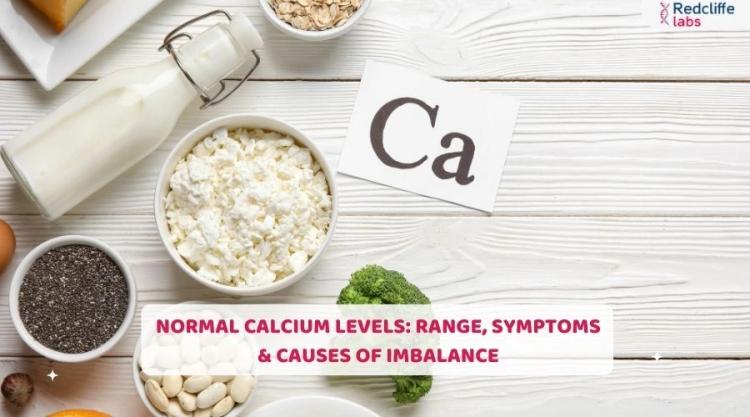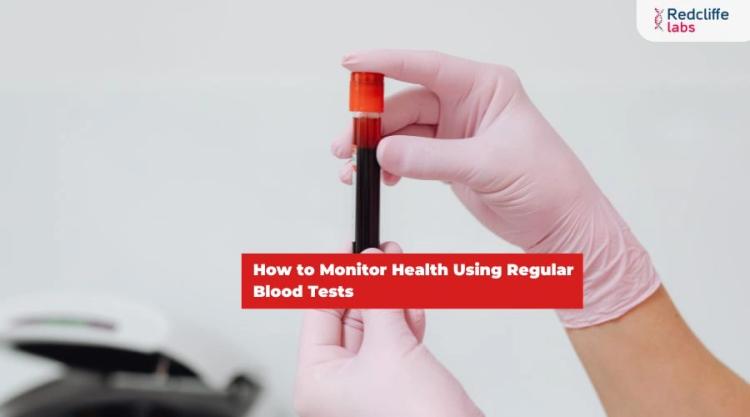5 Blood Tests for Joint Pain

Medically Reviewed By
Dr. Geetanjali Gupta
Written By Muskan Taneja
on Jan 6, 2025
Last Edit Made By Muskan Taneja
on Jul 19, 2025

Did you know the prevalence of rheumatoid arthritis (RA) in India is estimated to be 0.7%-0.92%, which is higher than the global prevalence (0.46%)? This prevalence can be curbed through a blood test for joint pain. Blood tests can early diagnose joint pain, stiffness, and inflammation.
Rheumatoid arthritis is a chronic autoimmune disease that causes joint pain, inflammation, and stiffness. Although it has no cure, treatment can help manage your symptoms. A blood test for joint pain is the first step toward treatment. There are various blood tests for arthritis, and this guide will provide you with a list of 10 effective blood tests for joint pain.
The Role of Blood Test for Joint Pain
Blood tests are essential for the diagnosis and treatment of arthritis for several reasons:
-
Early Detection
Blood tests for arthritis can detect specific markers and indicators of inflammation and immune system activity even before symptoms become apparent. Early detection is essential for initiating timely treatment, which can help prevent further joint damage.
-
Differentiation of Arthritis Types
There are various types of arthritis, each with distinct underlying causes and mechanisms. A blood test for joint pain can help differentiate between these types, guiding clinicians toward the most appropriate treatment strategies.
-
Monitoring Disease Activity
Blood tests are used to monitor the progress of arthritis and assess the effectiveness of treatment. Regular testing helps track changes in inflammation levels and other markers, allowing doctors to adjust the treatment plan as needed.
-
Predicting Disease Progression
A rheumatoid arthritis diagnosis test can provide insights into the likelihood of disease progression and the potential development of complications. This information helps both patients and healthcare providers prepare for the future.
Before moving ahead, let’s understand the causes and symptoms of joint pain.
Causes of Joint Pain
Many conditions can cause joint pain. Additionally, the cause of joint pain varies among the different types.
- Injury- A fracture, sprain, strain, or excessive efforts of the joints are common reasons for an injury.
- Viral Infection—Hepatitis C virus (HCV) is a common viral infection that causes health problems, including joint pain. Studies have found that people with HCV have rheumatoid diseases.
- Disease- Lupus is a chronic autoimmune disease, and common symptoms include muscle and joint pain.
Symptoms of Joint Pain
These causes can cause symptoms, and early detection can help prevent them. The following are symptoms of joint pain.
- Pain
- Stiffness
- Decreased range of motion
- Grating sensation
- Bone spurs
- Swelling, redness, or warmth
Erythrocyte Sedimentation Rate (ESR) Test
An ESR test locates the inflammation level in your body. This test measures how quickly erythrocytes (present in red blood cells) separate from other cells much faster. This rheumatoid arthritis blood test result can be high or low. A low ESR level can indicate low levels of inflammation, while a high ESR indicates high levels of inflammation.
Here is a detailed description of the ESR test.
|
Erythrocyte Sedimentation Rate (ESR) Test |
Details |
|
Also Known as |
Sed Rate, ESR |
|
Purpose |
To determine inflammation & diagnose disease-causing inflammation |
|
Sample |
Blood |
|
Preparation |
No special preparation; however, inform your healthcare professional if you are taking any medications. |
|
Reports TAT |
10 hours |
|
Result Value |
Millimeters per hour (mm/hr) |
|
Normal Value |
≤15 mm/hr for males and ≤ 20 mm/hr for females |
|
Result Interpretation |
A higher ESR range indicates more inflammation in your body. |
C-reactive Protein (CRP) Test
Your liver, which works in your immune system, produces CRP protein as the response to the infection. A CRP test looks for the level of CRP protein in your blood. Rheumatoid arthritis blood test results can confirm whether RA is possible. Here is a detailed description of the CRP test.
|
C-reactive protein (CRP) Test |
Details |
|
Also Known as |
Protein C-Reactive |
|
Purpose |
Measure CRP levels in the blood. |
|
Sample |
Blood |
|
Preparation |
No special preparation is required. |
|
Reports TAT |
10 hours |
|
Result Value |
Milligrams per liter (mg/L) |
|
Normal Value |
Less than 0.3 mg/L |
|
Result Interpretation |
A high CRP level may indicate autoimmune disease, bacterial infection, heart attack, or severe infection. |
Complete Blood Count Test
CBC test, or full body count, evaluates the cells that make up your blood. This includes white blood cells, red blood cells, and platelets. RA rarely disrupts your blood cells. However, some symptoms do. CBC rheumatoid arthritis diagnosis test can detect, prevent, and manage the symptoms of RA early. Here is a detailed description of the CBC test.
|
Complete Blood Count (CBC) Test |
Details |
|
Also Known as |
Blood count, complete blood picture |
|
Purpose |
Measure blood components to diagnose various disorders. |
|
Sample |
Blood |
|
Preparation |
No special preparation is required |
|
Reports TAT |
12 hours |
|
Result Value |
cells/mcL |
|
Normal Value |
|
|
Result Interpretation |
Diagnose medical conditions |
Anti Cyclic Citrullinated Peptide Antibodies (Anti CCP) Test
Cyclic citrulinated peptide antibodies are a type of immune system protein called an autoantibody. Autoantibodies are abnormal proteins that attack healthy tissues and blood cells. An anti-CCP test can determine the severity of the rheumatoid arthritis cases and prevent its complexity. Here is a detailed description of the anti-CCP test.
|
Anti-CCP Test |
Details |
|
Also Known as |
Cyclic citrullinated peptide antibody test |
|
Purpose |
Measure the level of anti-CCP antibodies in the blood. |
|
Sample |
Blood |
|
Preparation |
Don’t take any over-the-counter medicine without confirming with your doctor |
|
Reports TAT |
24 hours |
|
Result Value |
u/mL |
|
Normal Value |
Below 20 u/mL |
|
Result Interpretation |
If the levels are higher than this standard range, indicating the possibility of Rheumatoid Arthritis. |
Rheumatoid Factor (RA) Quantitative Test
Rheumatoid Factors are immune system proteins that sometimes attack the healthy tissue in your body. A RA factor test measures the level of rheumatoid factor proteins in your blood. Not everyone with rheumatoid arthritis has a high level of rheumatoid factor proteins. A blood test for joint pain can help detect the level. Here is a detailed description of the RA Factor Test.
|
RA Factor Test |
Details |
|
Also Known as |
Rheumatoid Factor Test |
|
Purpose |
To measure rheumatoid factor in your blood sample. |
|
Sample |
Blood |
|
Preparation |
There is no specific preparation; however, wear comfortable clothing that allows easy access to your arm. |
|
Reports TAT |
12 Hours |
|
Result Value |
IU/mL |
|
Normal Value |
14-15 IU/mL |
|
Result Interpretation |
An abnormal value indicates a higher level of RF in the blood, which could mean rheumatoid arthritis or inflammation. |
Steps to Book These Tests from Redcliffe Labs
- Visit the website, www.redcliffelabs.com
- Search for the specific test you need.
- Click on ‘Book Now.’
- Fill out the required details (address and time).
- A phlebotomist will visit your home for a sample collection.
- Receive the test reports within no time.
The Bottom Line
A blood test for joint pain provides important information for identifying, diagnosing, and treatment of types of arthritis. If you experience joint pain, stiffness, or inflammation, visit the Redcliffe Labs website or app, or search for ‘Redcliffe Labs near me’ and get yourself tested. Early detection can help prevent future complications.



